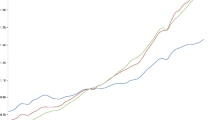Abstract
Korea’s reverse brain drain (RBD) has been an organized government effort, rather than a spontaneous social phenomenon, in that various policies and the political support of President Park, Chung-Hee were instrumental in laying the ground work for its success. Particular features of Korea’s RBD policies are the creation of a conducive domestic environment (i.e., government-sponsored strategic R & D institution-building, legal and administrative reforms), and importantly, the empowerment of returnees (via, i.e., exceptionally good material benefits, guarantees of research autonomy). President Park played the cardinal role in empowering repatriates at the expense of his own civil bureaucracy, and his capacity for such patronage derived from Korea’s bureaucratic-authoritarian political system. Returning scientists and engineers directly benefited from this political system as well as Park’s personal guardianship. For Park, empowerment of returning “brains” was necessary to accomplish his national industrialization plan, thereby enhancing his political legitimacy in domestic politics. An alliance with the R & D cadre was functionally necessary to successfully consolidate strong presidential power, and politically non-threatening due to the particular form of “pact of domination” in Korea’s power structure. RBD in Korea will continue in the near future given Korea’s drive for high technology, and the remarkable expansion of local industrial and educational sectors. Korea’s future RBD, however, needs to pay closer attention to the following four problems: research autonomy; equality issues; skill-based repatriation of technicians and engineers rather than Ph.D.’s; and subsidies to small and medium industry for RBD.
Similar content being viewed by others
Author information
Authors and Affiliations
Additional information
Bang-Soon L. Yoon is assistant professor of political science, Central Washington University. She is currently working onWorld Bibliographical Series: South Korea, to be published by Clio Press, Ltd., Oxford, England, co-edited with Michael A. Launius.
An earlier version of this paper was read at the 49th Annual Meeting of the Midwest Political Science Association, Chicago, Illinois, April 18–20, 1991.
Rights and permissions
About this article
Cite this article
Yoon, BS.L. Reverse brain drain in South Korea: State-led model. Studies in Comparative International Development 27, 4–26 (1992). https://doi.org/10.1007/BF02687102
Issue Date:
DOI: https://doi.org/10.1007/BF02687102




